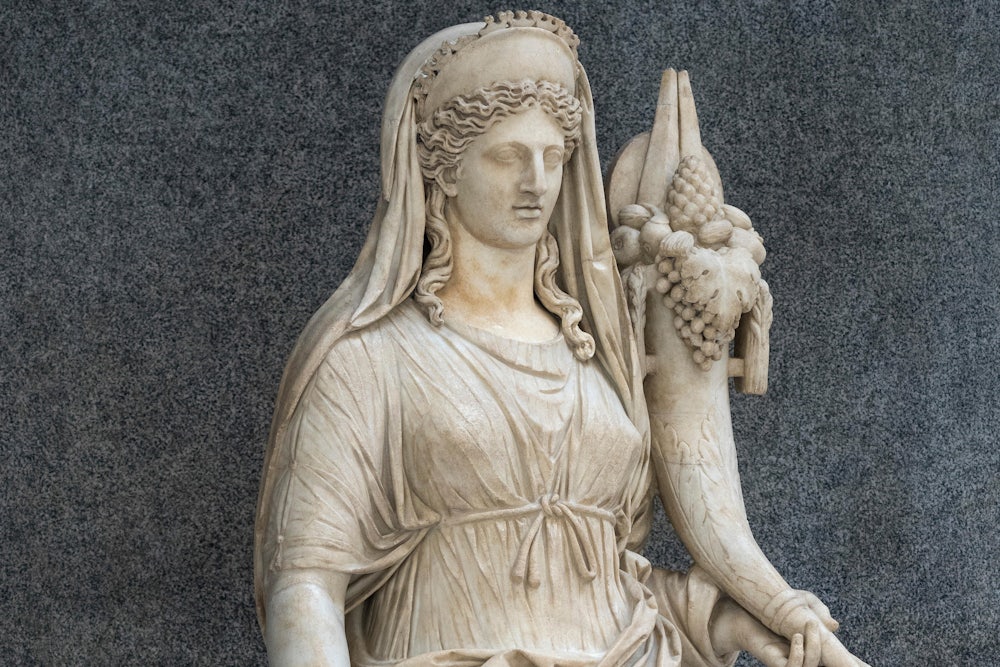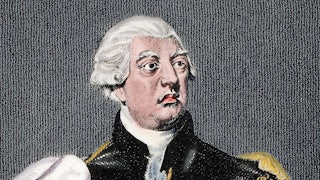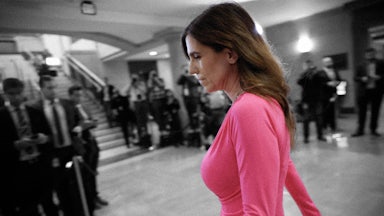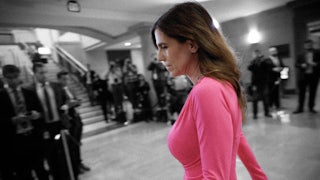In his book Machiavelli: A Very Short Introduction, Quentin Skinner, perhaps the foremost contemporary scholar of modern republicanism, relates how the renowned republican thinker Niccolò Machiavelli, discouraged by his failed efforts to secure a position in the latest Medici government of Florence, decided to repair to his farm south of Florence—“a poor house on a tiny patrimony,” in Machiavelli’s words—to begin a new life of contemplation and writing.
Skinner tells us that, to make his new and isolated life more bearable, Machiavelli would retire every evening to his study to read and think. “He has been concentrating on classical history, ‘entering the ancient courts of ancient men’ in order to ‘speak with them and ask them the reasons for their actions,’” Skinner writes. And in a journal article called “Crossings to Another World: Machiavelli and Others,” Sebastian de Grazia writes similarly, quoting from a letter Machiavelli wrote to a friend: “One journeys into another world where the great ancient dead dwell, and joyfully mingles with them, conversing, questioning and learning…. One crosses a divide to where the great ancients dwell.”
Following the instructions of a renowned medium in Tuscany, I had daringly summoned Niccolò Machiavelli from the dead, with little expectation that he would actually materialize, but when I looked up from the book I was reading, there he stood, dressed in Renaissance finery, smiling sardonically.
“You did not expect me to come,” he said. “Me eccomi qui! Here I am!”
“Sì, vedo!” I said, “Yes, I see! I am flattered that you could spare the time.”
“I have nothing but time where I abide, and you have, I think, summoned me for a weighty reason: The world’s leading democratic republic is threatened with dissolution.” “Indeed it is,” I agreed. “We have had a string of very bad luck. Fortuna—fortune, or luck, in English—seemed to have turned against us. We had George W. Bush become president because of a misleading ballot in one part of Florida, and he gave us the disaster of the Iraq War. Then we experienced the worst financial crisis since the Great Depression, and then Donald Trump got elected president because the director of our national law enforcement agency reopened an investigation just before Election Day, suggesting in people’s minds that his opponent might have committed a crime. Then we were hit with a raging health crisis Trump was incompetent to handle—many thousands of Americans died unnecessarily. And finally, before his successor took office, Trump tried to overturn the election. We have a decent and competent president now, but Fortuna has barely given us a break.”
Machiavelli replied: “As I’m sure you know, since you’ve read professor Quentin Skinner’s excellent little book, there are two sources of my knowledge about politics. The first is the experiences I had as an envoy from republican Florence to various diplomatic outposts as a naïve and impressionable young man. It was on these forays that I saw the depths of depravity that the conduct of political leaders could reach. It was such experiences that informed my infamous tract The Prince, which, few people realize, is an exercise in satire. The other source was the history of the Roman republic, as recounted by the historian Livy, which resulted in my Discourses on Livy.”
“And what,” I asked, “was the aim of you work on Livy exactly?”
“What I sought from Livy,” Niccolò responded, “and what I indeed found, was the answer to the query, ‘What was it that enabled Rome to attain the heights of power and greatness that it attained?’ And what I learned was….”
“Ruthlessness and cunning, again?”
“No,” Niccolò rejoined. “What I learned was the importance of liberty. It was the amount of liberty vouchsafed the citizens of Rome that enabled them to scale the heights of grandeur as they did. And that is what would be so tragic about the demise of freedom in America. America has likewise scaled the heights of liberty to an extent unknown before. And it has had some terrible challenges to meet to accomplish that, to the degree it has. And by the way, when Rome finally fell, it was because there were barbarians at the gate. In America now, the barbarians are inside the gate.
“As Dr. Skinner has illuminated, there were two variables the Romans looked to in any challenging situation involving conflict. They were Fortuna and virtù, a word that Skinner says defies simple definition but clearly involves both physical and moral courage and strength of character. No one, no group of people can succeed if Fortuna does not look on them favorably, but those who manifest virtù are more likely to draw the favorable attention of Fortuna—who, after all, the professor points out, is a Goddess.”
“Well, to translate this into modern terms, you make your own luck,” I said. “Fai la tua Fortuna.”
“Yes, you do to some extent,” he rejoined. “The Roman sages estimated that half of what happens to humans is a matter of chance. The other half you may have control over, depending on the prevailing inclinations of the Goddess.”
“Surely Fortuna is not going to countenance another Donald Trump presidency...”
“We now know that Donald Trump possesses an implacable determination on which there are no moral restraints. You must be equally resolute and seek the quality of virtù in your leaders above all else, because that is what the Goddess wants. And it is a quality the former president will never possess, so this gives you a golden opportunity to turn back the tides of despotism that threaten to engulf your country.”
I pondered these words in silence for a stretch, then looked over to Niccolò. But he was already gone, returned to the shadowy underworld he now inhabits.






